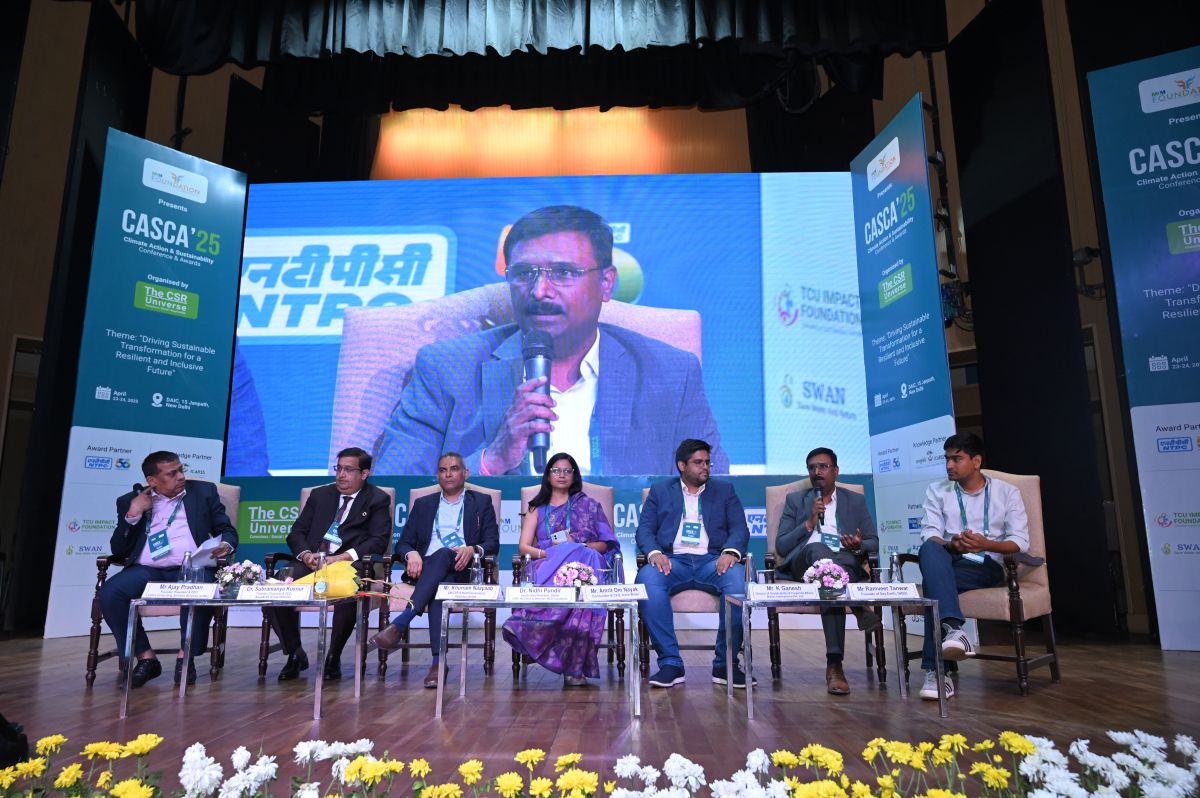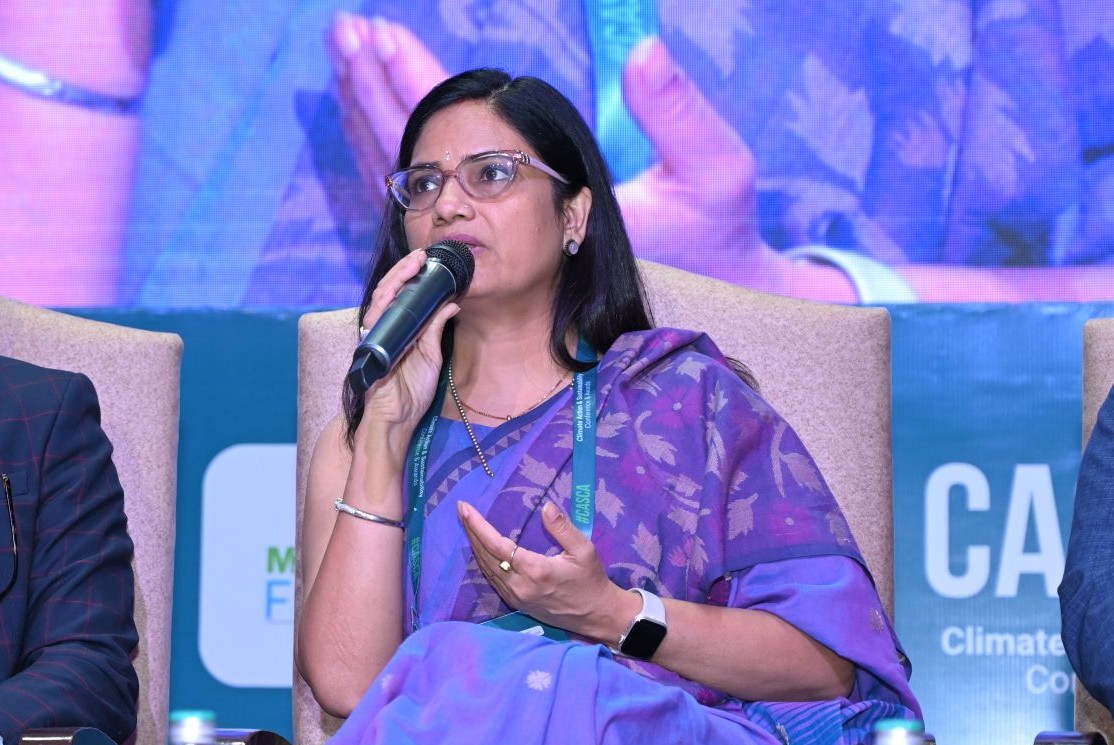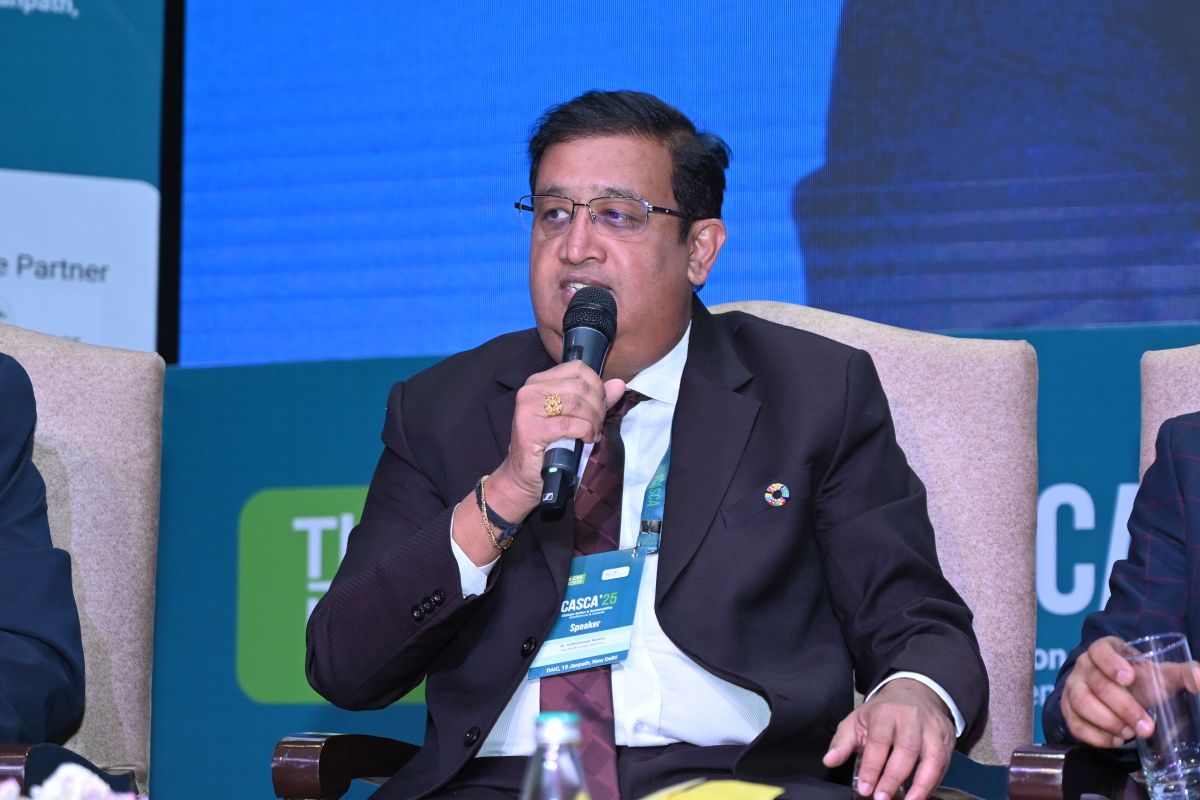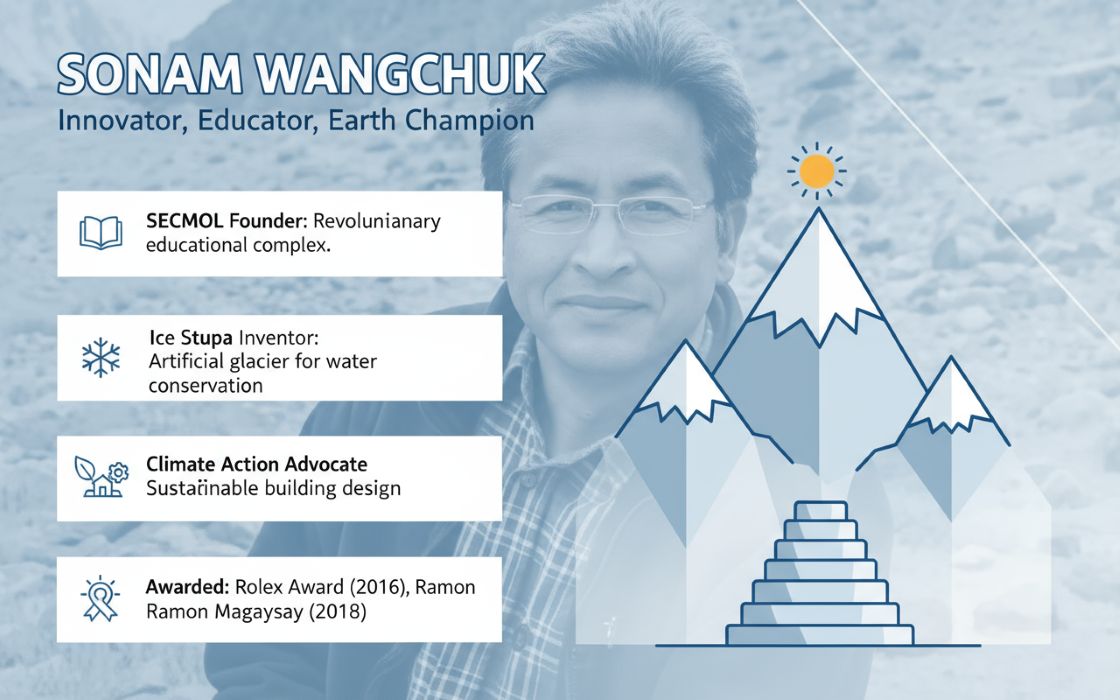Water is life, yet in India, it is becoming increasingly scarce. With only 4% of the world's freshwater reserves supporting over 18% of the global population, India’s water crisis is no longer a looming threat—it is a daily reality. At the Climate Action and Sustainability Conference & Awards (CASCA’25), organised by TheCSRUniverse, presented by M3M Foundation and powered by YBRANT, a distinguished panel convened under the theme “Securing Our Water Future: Innovations & Strategies for Sustainable Water Conservation” to explore bold strategies and scalable innovations that could redefine India’s water future.
Moderated by Mr. Ajay Pradhan, Founder and CEO of Cetus Consulting Solution Services (C2S2), the session brought together corporate leaders, grassroots changemakers, and water-tech pioneers to present solutions rooted in science, community engagement, and sustainability.
Bisleri’s Path to Becoming Water Positive
Representing India’s most recognized packaged drinking water brand, Mr. K. Ganesh, Director of Sustainability & Corporate Affairs at Bisleri International, opened the discussion by addressing the paradox of a bottled water company leading water conservation efforts. 
“Being in the business of water, we have a responsibility to give back much more than we consume,” Mr. Ganesh stated.
Bisleri’s commitment dates back to 2001, with the construction of over 336 check dams harvesting 28.5 billion litres of water, rejuvenating 25,000 acres of farmland, and positively impacting 75,000 farming families. The company has also adopted high-efficiency recycling and multi-stage RO systems that reclaim up to 90% of used water.
A water footprint study with TERI revealed that 90% of water usage occurs beyond the factory premises, prompting Bisleri to champion "Water Green Credits" and invest in community-level recharge.
“We are a water-positive company—recharging 4.7 times more water than we consume,” Ganesh proudly declared, positioning Bisleri as a model for industrial water stewardship.
Smart Decentralized Solutions from Indra Water
As a startup founder from water-stressed Chennai, Mr. Amrit Om Nayak, Co-founder and CEO of Indra Water, shared how decentralized, tech-driven water treatment is changing the game in urban and industrial India.
“Our solutions treat stormwater and wastewater at the source, requiring minimal land and energy,” Mr. Amrit explained.
Indra Water’s systems have helped eliminate 8,000 tons of chemical use and prevented over 2,000 tons of CO₂ emissions. A notable partnership with Bisleri made its Pune plant water-positive, showcasing the power of industry-startup collaboration.
More than just numbers, Amrit emphasized impact: “We help industries reuse water on-site, enabling greater access for agriculture and communities downstream.”
The Pond Man’s Call for Traditional Wisdom
Mr. Ramveer Tanwar, affectionately known as the “Pond Man of India,” brought to light the forgotten treasure of rural water bodies. Through his NGO, Say Earth, he works with over 70 multinational companies to rejuvenate ponds and lakes, particularly in rural regions where India’s 2.4 million water bodies exist.
“These ponds are not garbage dumps. They are natural groundwater rechargers and biodiversity hotspots,” Mr. Ramveer stressed.
With boots-on-the-ground approaches—removing plastic waste, restoring catchments, and engaging local communities—Say Earth is reviving India's traditional water systems and re-educating people on their ecological value.
“We are already water positive,” he said. “Our mission is to help others get there by restoring nature’s original infrastructure.”
HCL Foundation’s Community-Centric Water Model
Representing one of India’s leading CSR institutions, Dr. Nidhi Pundir, Senior VP, Global CSR at HCLTech and Director of HCL Foundation, highlighted water as central to holistic rural development. 
“Water conservation wasn’t our starting point. But it soon became the foundation of all our developmental goals,” she shared.
Under her leadership, the foundation has conserved over 100 billion litres of water through lake rejuvenation, rainwater harvesting, and recharge structures—an equivalent of 32,000 Olympic swimming pools.
She stressed that lasting change comes from community involvement, public-private partnerships, and mapping traditional water bodies threatened by unchecked urbanization.
Vedanta’s Blueprint for Resilience
With a deep personal understanding of scarcity, Mr. Khurram Naayaab, GM-CSR & Head Governance at Vedanta Ltd., reflected on his journey from water-starved Delhi to implementing large-scale conservation projects in Barmer, Rajasthan.
“Water is not just a CSR commitment for us. It is a survival strategy,” he noted.
Vedanta’s initiatives include desilting ponds, building check dams, and harnessing saline water through filtration and treatment for agricultural and household use.
Mr. Khurram advocated for replicable, community-led frameworks tailored to the needs of water-stressed geographies. “True sustainability is built when the local community becomes the custodian,” he affirmed.
Transforming Water into an Economic Asset
Closing the session with an innovation-led lens, Dr. Subramanya Kusnur, Founder and CEO of AquaKraft Group Ventures, offered a bold vision—treating water as an economic asset.
From solar-powered drinking water systems to nature-based sewage treatment plants (STPs) that recycle 97% of wastewater without chemicals, AquaKraft’s models are designed for affordability, sca le, and zero-carbon footprints.
le, and zero-carbon footprints.
His most disruptive innovation? The world’s first Digital Water Bank—AQUArium—where companies can maintain digital water balance sheets, earn credits, and plan for water offsetting.
“Water is fragmented across ministries, policies, and responsibilities. We want to unify it as a measurable, tradable, and reportable resource,” Dr. Kusnur concluded.
A Call to Action: Bridging Ideas and Implementation
Moderator Mr. Ajay Pradhan closed the session with a powerful message: “We don’t need more research to start. The ideas shared here are actionable, scalable, and proven. Now is the time to implement.”
From corporate leadership and startup agility to grassroots resilience and digital innovation, CASCA’25’s water conservation panel showcased a multidimensional approach to India’s water security. Each speaker brought forth a unique piece of the puzzle—together building a vision where every drop counts, and every action matters.
As India faces its water reckoning, the message from CASCA’25 is clear: the future will be shaped not just by innovation, but by intention, collaboration, and stewardship.






 le, and zero-carbon footprints.
le, and zero-carbon footprints.


.jpg)









